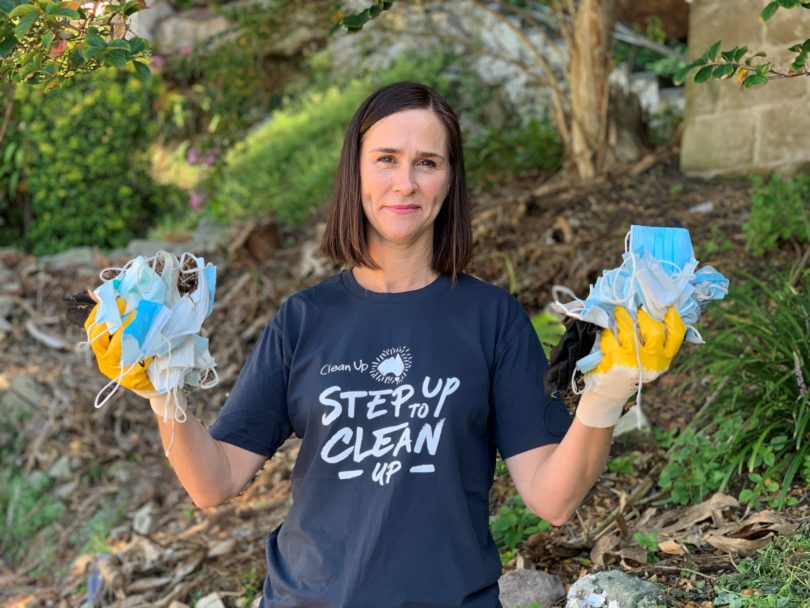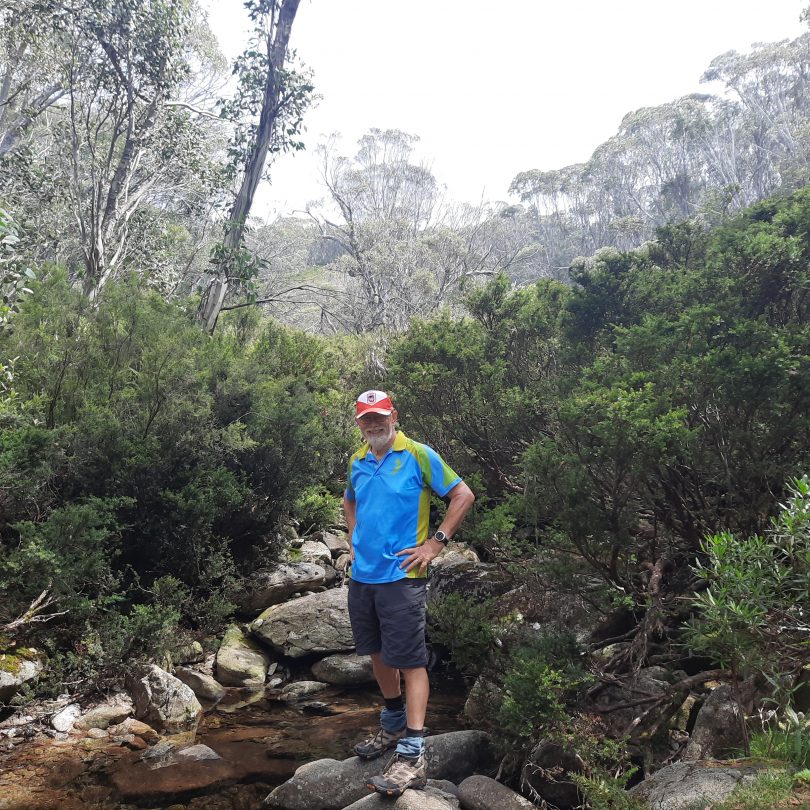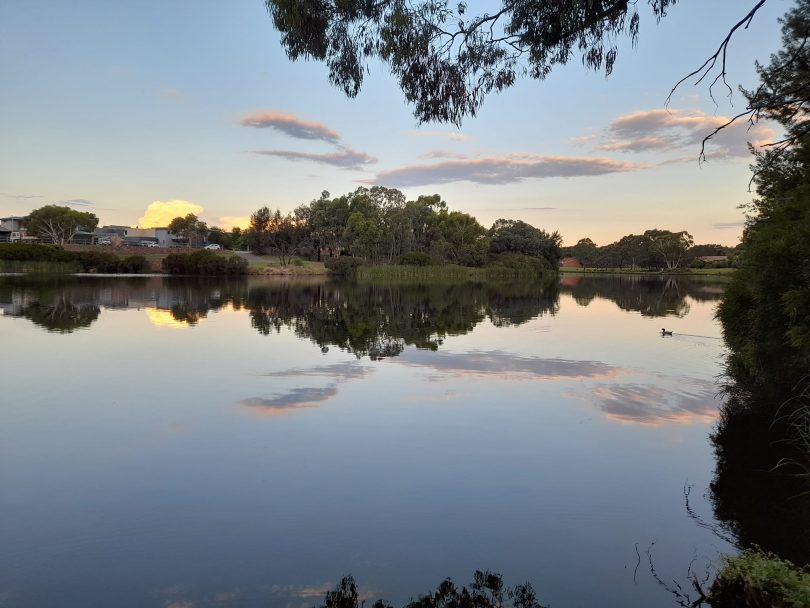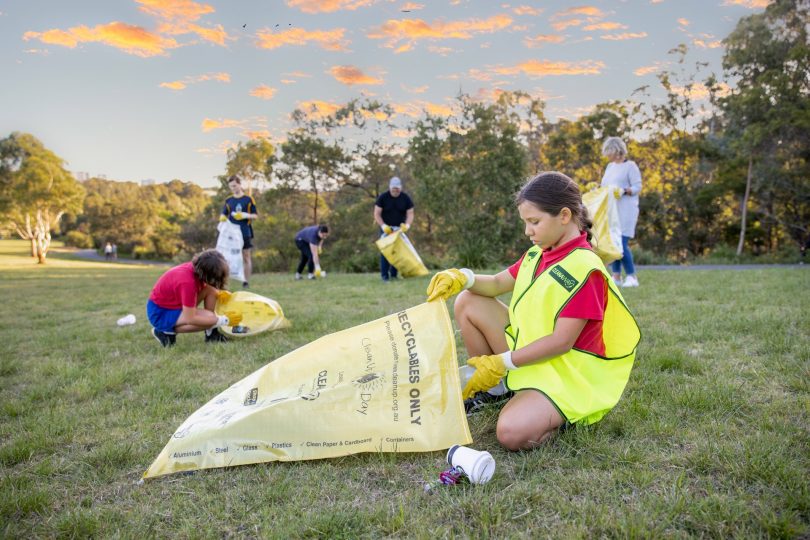
Clean Up Australia chair Pip Kiernan has her hands full with mask litter. Photo: Clean Up Australia.
Neville Sheather will join his neighbours near Stranger Pond in Bonython on Sunday, armed with plastic bags and pick-up tools.
As always, their mission is to exterminate litter. But there’s a new enemy on the radar for this year’s Clean Up Australia Day on Sunday, 6 March: disposable face masks.
The retiree, who has taken part in the nation’s largest community-based environment event since moving to Canberra’s south 25 years ago, has seen plenty of changes for the better.
“When I started off, there was so much rubbish here we would fill an industrial-size skip bin to overflowing,” Neville said. “Nowadays, it’s so much better. We might get 15 bags from around the pond and surrounding streets.”
He said the day served as a valuable reminder about the dangers of leaving rubbish in the environment. And over the past two years, one item keeps turning up where it shouldn’t.
“I walked around the pond two days ago and spotted several face masks just lying around.”

Neville Sheather has been a volunteer for Clean Up Australia for 25 years. Photo: Supplied.
More than three billion single-use masks were thrown out across the globe every day in 2020, contributing to a significant portion of pandemic-related litter entering the environment.
Locally, the extent of the problem remains unclear. But Clean Up Australia Day volunteers hope to unmask the impact by tallying the number of face masks collected and removed from the environment – all part of a new ‘citizen-science project’ component for 2022.
Clean Up Australia chairperson Pip Kiernan said there was no doubt the amount of plastic waste had surged because of the pandemic, but there was no data to confirm the number of face masks in our environment.
“Our habits changed during COVID and most of these haven’t been kind on the environment,” Ms Kiernan said.
“Surges in online shopping, meal delivery services and the use of disposable face masks and coffee cups mean the environment is feeling the after-effects of the pandemic in ways not seen before.
“We can’t cover up the problem – now is the time to act.”

Stranger Pond in Bonython. Photo: Nicky Gee.
Plastics in disposable masks can take up to 450 years to break down and researchers have warned that littered single-use masks could be releasing chemical pollutants and nano-plastics into the environment.
In a study released last year, scientists at Swansea University in Wales uncovered potentially dangerous pollutants were leeched from disposable face masks when submerged in water.
The research revealed high levels of pollutants – including lead, antimony and copper – within the silicon-based and plastic fibres of common disposable face masks.
Over the past two years, there have also been cases of seabirds and wildlife found tangled in carelessly discarded single-use face masks.

Volunteers do their bit during Clean Up Australia Day. Photo: Tim Levy.
“We implore you not to litter your mask,” Ms Kiernan said.
She said the next generation of Personal Protective Equipment (PPE) needed to be designed not only for safety but also for the lowest environmental footprint possible. Used rapid-antigen tests are also making their way into landfill in disturbing numbers.
But masks and COVID-related litter may not be the only interesting finds for volunteers on 6 March. Neville said one year his team came across a 22-inch rifle, carefully wrapped in plastic and hidden in the reeds beside the pond.
“The police came and took it away and that’s the last we ever saw of it.”
Registration for Clean Up Australia Day is now open on the Clean Up Australia website. Registration means participants are covered by Clean Up Australia’s public liability insurance and all community and school groups receive free gloves and bags (businesses are asked to pay a small fee to cover costs).













